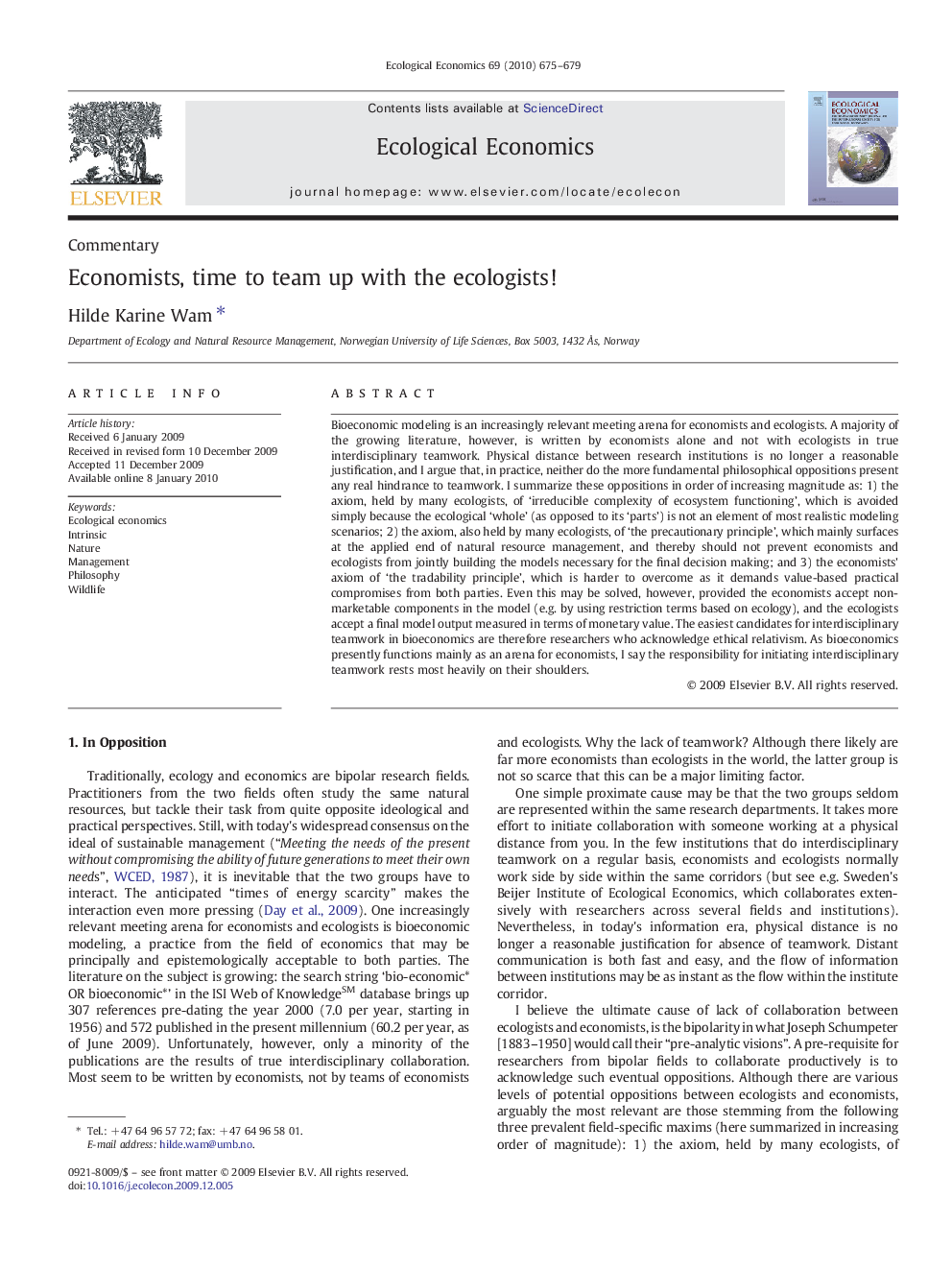| Article ID | Journal | Published Year | Pages | File Type |
|---|---|---|---|---|
| 5051082 | Ecological Economics | 2010 | 5 Pages |
Bioeconomic modeling is an increasingly relevant meeting arena for economists and ecologists. A majority of the growing literature, however, is written by economists alone and not with ecologists in true interdisciplinary teamwork. Physical distance between research institutions is no longer a reasonable justification, and I argue that, in practice, neither do the more fundamental philosophical oppositions present any real hindrance to teamwork. I summarize these oppositions in order of increasing magnitude as: 1) the axiom, held by many ecologists, of 'irreducible complexity of ecosystem functioning', which is avoided simply because the ecological 'whole' (as opposed to its 'parts') is not an element of most realistic modeling scenarios; 2) the axiom, also held by many ecologists, of 'the precautionary principle', which mainly surfaces at the applied end of natural resource management, and thereby should not prevent economists and ecologists from jointly building the models necessary for the final decision making; and 3) the economists' axiom of 'the tradability principle', which is harder to overcome as it demands value-based practical compromises from both parties. Even this may be solved, however, provided the economists accept non-marketable components in the model (e.g. by using restriction terms based on ecology), and the ecologists accept a final model output measured in terms of monetary value. The easiest candidates for interdisciplinary teamwork in bioeconomics are therefore researchers who acknowledge ethical relativism. As bioeconomics presently functions mainly as an arena for economists, I say the responsibility for initiating interdisciplinary teamwork rests most heavily on their shoulders.
